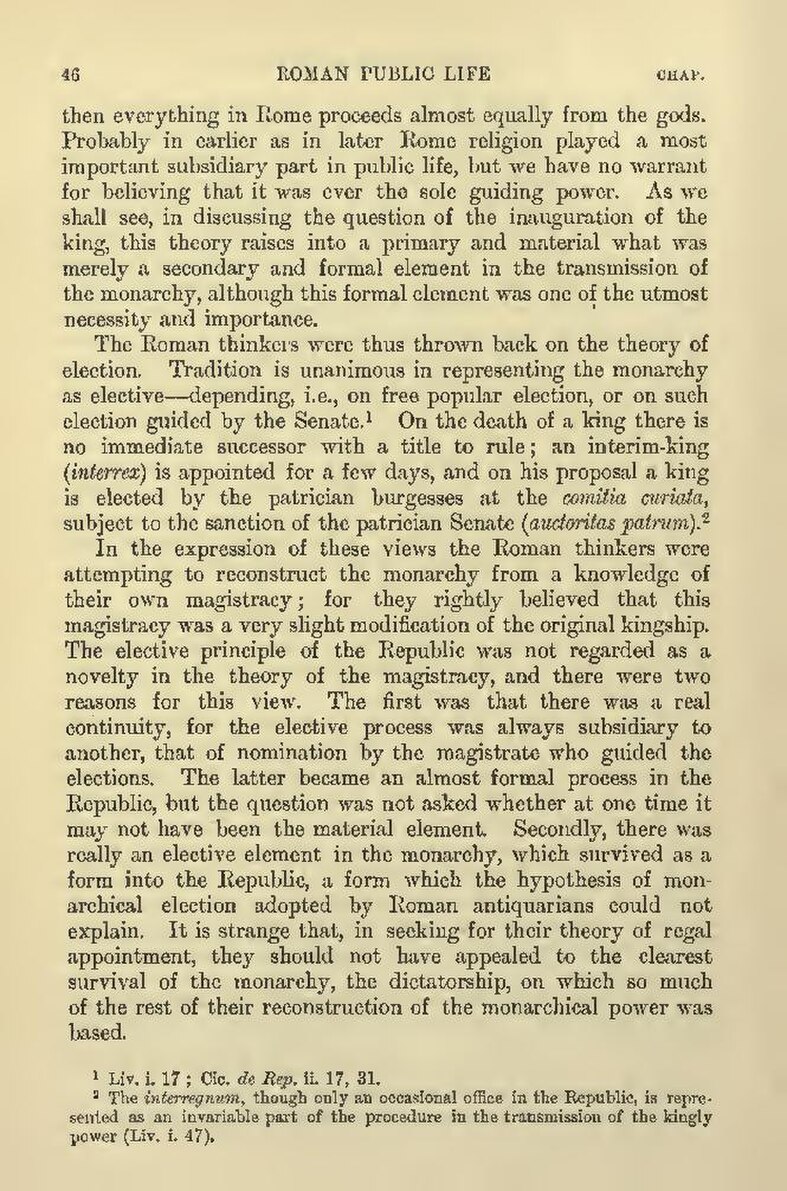then everything in Rome proceeds almost equally from the gods. Probably in earlier as in later Rome religion played a most important subsidiary part in public life, but we have no warrant for believing that it was ever the sole guiding power. As we shall see, in discussing the question of the inauguration of the king, this theory raises into a primary and material what was merely a secondary and formal element in the transmission of the monarchy, although this formal element was one of the utmost necessity and importance.
The Roman thinkers were thus thrown back on the theory of election. Tradition is unanimous in representing the monarchy as elective—depending, i.e., on free popular election, or on such election guided by the Senate.[1] On the death of a king there is no immediate successor with a title to rule; an interim-king (interrex) is appointed for a few days, and on his proposal a king is elected by the patrician burgesses at the comitia curiata, subject to the sanction of the patrician Senate (auctoritas patrum).[2]
In the expression of these views the Roman thinkers were attempting to reconstruct the monarchy from a knowledge of their own magistracy; for they rightly believed that this magistracy was a very slight modification of the original kingship. The elective principle of the Republic was not regarded as a novelty in the theory of the magistracy, and there were two reasons for this view. The first was that there was a real continuity, for the elective process was always subsidiary to another, that of nomination by the magistrate who guided the elections. The latter became an almost formal process in the Republic, but the question was not asked whether at one time it may not have been the material element. Secondly, there was really an elective element in the monarchy, which survived as a form into the Republic, a form which the hypothesis of monarchical election adopted by Roman antiquarians could not explain. It is strange that, in seeking for their theory of regal appointment, they should not have appealed to the clearest survival of the monarchy, the dictatorship, on which so much of the rest of their reconstruction of the monarchical power was based.
